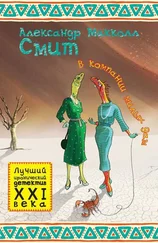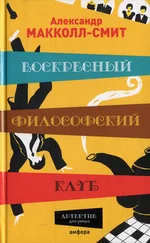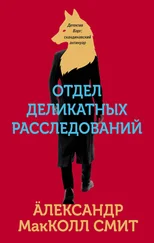The woman’s irritation increased. ‘This fruit does not belong to anybody yet. It has not been bought. We are not taking fruit from anybody.’ She paused before delivering her final shot. ‘So please mind your own business, Mma.’
With that, the woman had marshalled her brood of children – some still with their mouths full – and drifted away in the direction of the bread counter. Mma Ramotswe had stood quite still, hardly able to believe what she had seen. Mind her own business? But it was her business. When other people behaved dishonestly it was the business of others, because if we did not react to the bad behaviour of others, then we weakened the whole of society, and that was definitely part of everybody’s business.
She hesitated. There is an inbuilt human reluctance to inform on other people; nobody likes to be thought of as a sneak, as somebody who runs to the authorities. And yet it was her duty, she felt, to warn the store that this woman and her little band of locusts were eating food that did not belong to them. So she went to one of the desks and told the young woman there what was happening. ‘Now they have gone to the bread counter,’ she said. ‘They will be helping themselves there, too, unless you stop them.’
The young woman shrugged. ‘We know that woman. She is always bringing her children in here.’
Mma Ramotswe waited for something further to be said, but the young woman simply shrugged again.
‘You should stop them, Mma,’ said Mma Ramotswe.
‘Can’t prove anything,’ said the young woman. ‘They never do it when we’re watching. They are very clever.’
Mma Ramotswe stared at her in disbelief, but this merely elicited another shrug. And with that, the incident, it seemed, was closed. But she thought about it – both there, in the supermarket, as she did her own shopping, and afterwards, as she drove home in the white van. She thought of what her father, the late Obed Ramotswe, or even Seretse Khama himself would have said about this. They would have said: This is not what Botswana needs . And they were right, she felt, although she was relieved that, being late, they had been spared the sight of what she had witnessed.
On this occasion there was no such shocking incident at the supermarket, but there was nonetheless a meeting. This was with Mma Potokwani, whom Mma Ramotswe encountered in the supermarket’s sauce and condiment section. Mma Potokwani was examining a jar of extra-strong pickle with the expression of one who is doubtful as to whether her palate will be able to bear the heat.
‘Ah, Mma Ramotswe,’ she said. ‘Do you know whether this sauce is as hot as the jar claims? The label has a picture of a man with fire coming out of his mouth. Look.’
She handed her friend the jar for scrutiny. ‘I believe this is very hot,’ said Mma Ramotswe. ‘But the picture is an exaggeration, I think. I do not think it will set you on fire.’ For a moment she pictured Mma Potokwani with flames coming out of her mouth. She imagined herself reaching for a fire extinguisher and covering her friend in white foam, or pushing her down to the ground and covering her head with a fire blanket. It would be an undignified end to a meal.
The jar of sauce found its way into Mma Potokwani’s trolley, and the conversation moved on from sauce to the possibility of a chat after they had both finished their shopping. An arrangement was made: they would meet in forty minutes at the café near the outside stairs. ‘There is something I need to talk about, Mma,’ said Mma Potokwani. ‘It is quite a serious matter, I’m afraid.’
Mma Ramotswe did not relish spending the next forty minutes worrying, and so she asked Mma Potokwani what it was about.
‘It is rather hard to explain,’ said Mma Potokwani. ‘It is to do with Mma Makutsi. I shall tell you once we sit down and can chat.’
To do with Mma Makutsi? This hardly helped, and by the time she found herself with Mma Potokwani at the Equatorial Café she was feeling thoroughly anxious. But even then, the conversation did not go straight to the subject of Mma Makutsi, but meandered gently in that direction, by way of a discussion of orphans, cake and guilt, and one or two other subjects of equal importance.
The subject of orphans was triggered by Mma Ramotswe’s enquiry as to whether any new children had arrived at the Orphan Farm.
‘There is a young boy,’ said Mma Potokwani. ‘He has recently come in. It is very sad. He lost his parents in a mining accident up at Selebi-Phikwe.’
‘Both parents?’ asked Mma Ramotswe. ‘The mother as well as the father? Did they both go down the mine together? At the same time, Mma?’
Mma Potokwani waved the question aside. ‘There are many women who go down mines,’ she said. ‘Women are always going down mines these days.’
Mma Ramotswe looked dubious. ‘Are you sure, Mma?’
Mma Potokwani was sure. ‘I could tell you some very sad stories,’ she said. ‘But what is the point? The fact of the matter is that the poor child has no parents. That is what we have to deal with. It does not matter how the parents were lost.’
‘But it’s unusual for two parents to be lost in the same mining disaster, don’t you think?’
‘The Lord works in strange ways,’ said Mma Potokwani, closing down the discussion. ‘That is all I have to say on the subject.’
They had moved on to cake, having ordered a slice each to eat with their tea. Mma Potokwani had told the waitress that she wanted a large piece, and she was sure that Mma Ramotswe felt the same. ‘None of your thin slices,’ she warned. ‘I have seen you serve some very thin slices here. We do not want any of those, if you please.’
Mma Ramotswe had nodded her agreement. ‘I see no reason why we should not have a large slice,’ she said. ‘Or even two. I do not feel guilty about eating cake any more. I used to, but no longer.’
‘You are very wise,’ said Mma Potokwani. ‘How did you do it, Mma? Did you stop thinking about the things that made you feel guilty?’
Mma Ramotswe shook her head. ‘I read an article in a magazine. I was at the dentist and there was a magazine for the patients to read. I read an article under a headline that said: Why you shouldn’t feel guilty any more . I started to read it but then the dentist called me in and I had to leave it in the waiting room.’
‘It’s always very annoying when that happens,’ said Mma Potokwani. ‘Sometimes I’m listening to something on the radio – something interesting – and one of the housemothers calls me for one emergency or another. It is always the same – you miss the ending.’
Mma Ramotswe was silent. ‘I have a confession to make, Mma.’
Mma Potokwani raised an eyebrow. Had Mma Ramotswe been eating too much cake? Was that weighing on her? Cake can weigh on people… She smiled at the thought: it certainly could, and it weighed heavily on her, perhaps, as on other traditionally built people.
‘After the dentist had finished,’ Mma Ramotswe went on, ‘I went back into the waiting room… and took the magazine.’ She paused. ‘It was very old, and I was just going to borrow it.’
Is that all ? thought Mma Potokwani. If that was all that troubled Mma Ramotswe, then hers must be an unburdened conscience indeed; although small things could always exert an undue influence on those whose lives were otherwise largely spotless. She had known a man, a cousin of her husband, who had been tormented by an ancient act of minor dishonesty and had dwelt on what he had done until he had made himself sick with guilt and worry. And it was such a small thing: a matter of a neighbour’s chicken that had wandered into his hen-coop and, rather than being sent back, had been allowed to stay. That was all, and yet he had dwelt on the incident for years and the neighbour could not understand why he kept being given chickens as a present on every conceivable occasion – Christmas, Botswana Day, Seretse Khama’s birthday, and so on. ‘What have I done to deserve such a kind neighbour?’ the recipient of this continued largesse had asked – a question that only made it worse for the donor, who thought: If only he knew that I am not kind – I am a stealer of chickens. Eventually he had confessed his torment to Mma Potokwani’s husband, who had simply laughed and told him to forget the whole matter as he had more than made up for his wrongdoing. Rra Potokwani told the neighbour, in fact, who went round to see the cousin and told him that he should give the matter no further thought, as he himself had done exactly the same thing with one of his chickens that had wandered across the boundary between their properties. And this, it seemed, had been the absolution that the cousin had wanted all along, and he was released from self-reproach, although he distrusted his neighbour thereafter on the grounds that he seemed so unmoved by his own wrongdoing. If he could so easily overlook something like that, what else could he overlook?
Читать дальше







![Александр Макколл Смит - Отдел деликатных расследований [litres]](/books/397661/aleksandr-makkoll-smit-otdel-delikatnyh-rassledova-thumb.webp)




